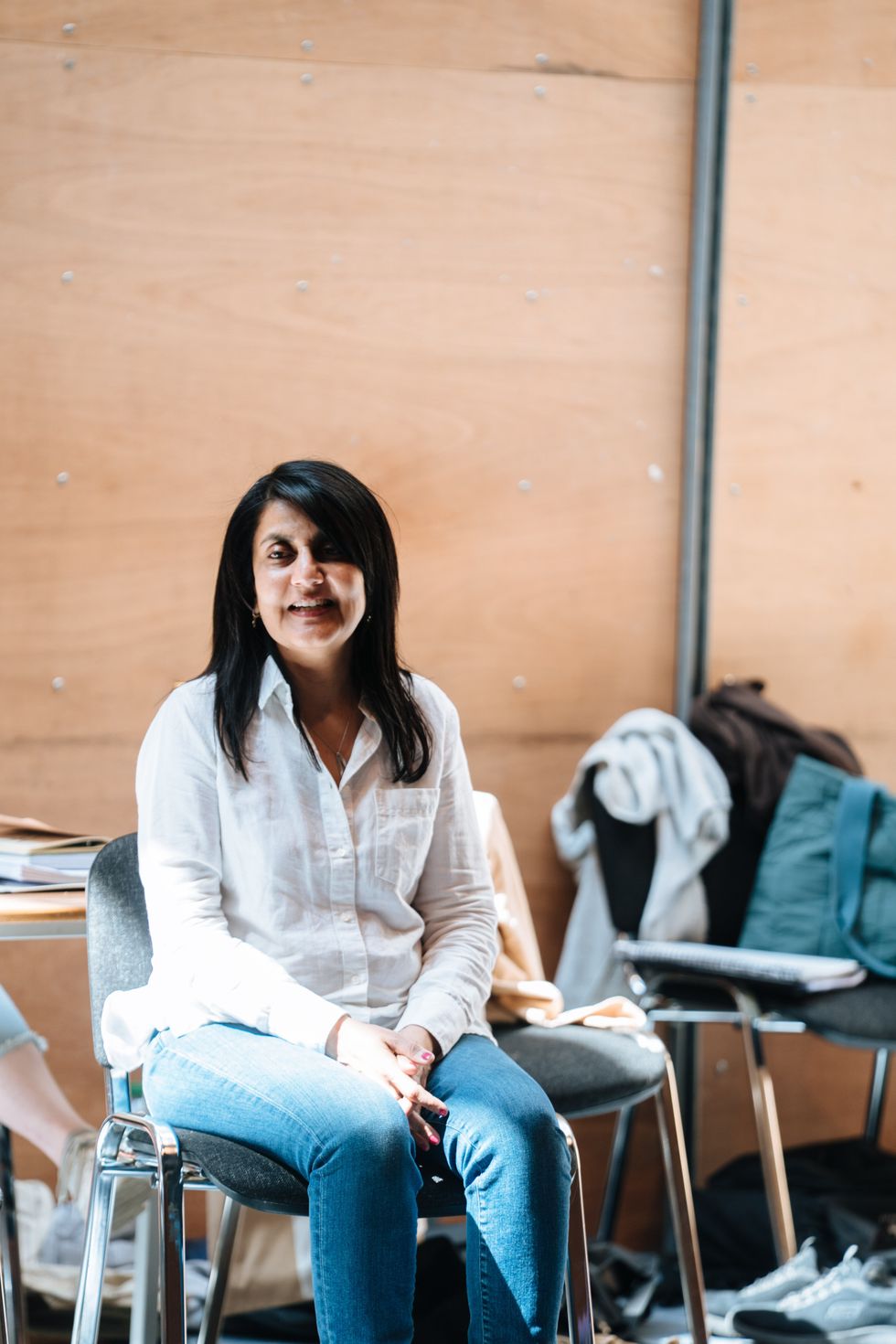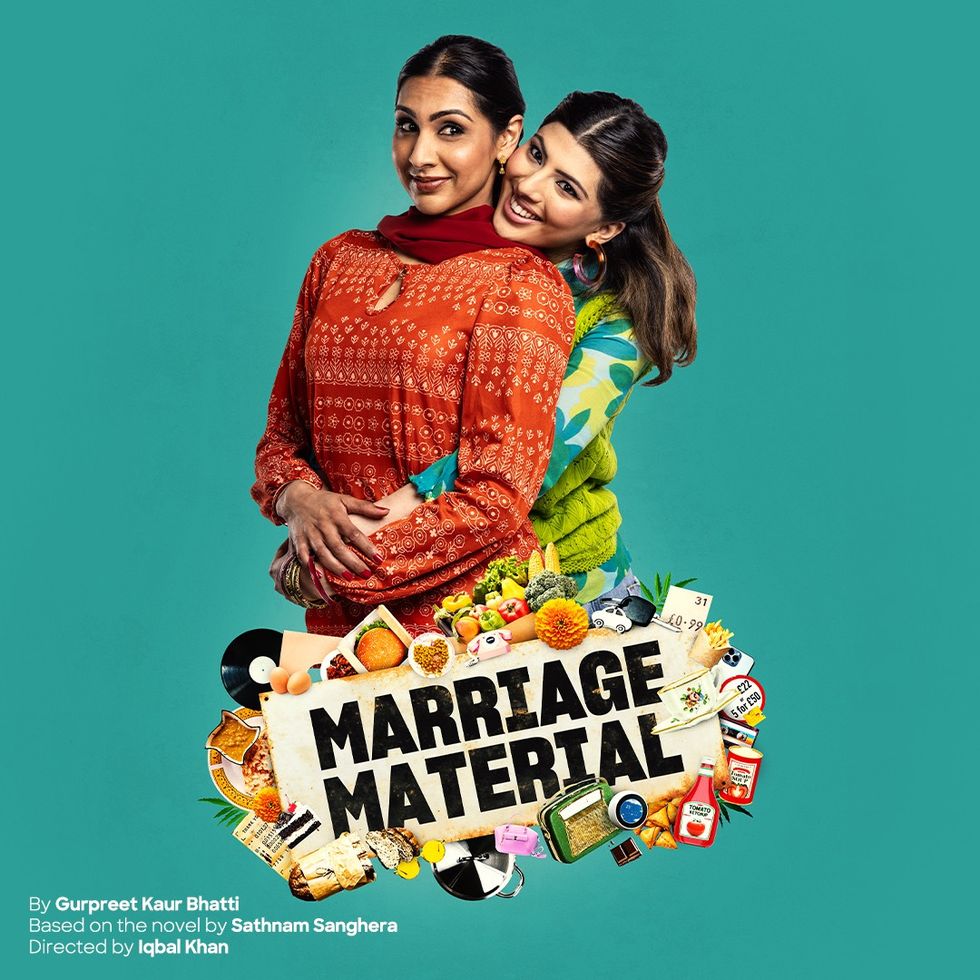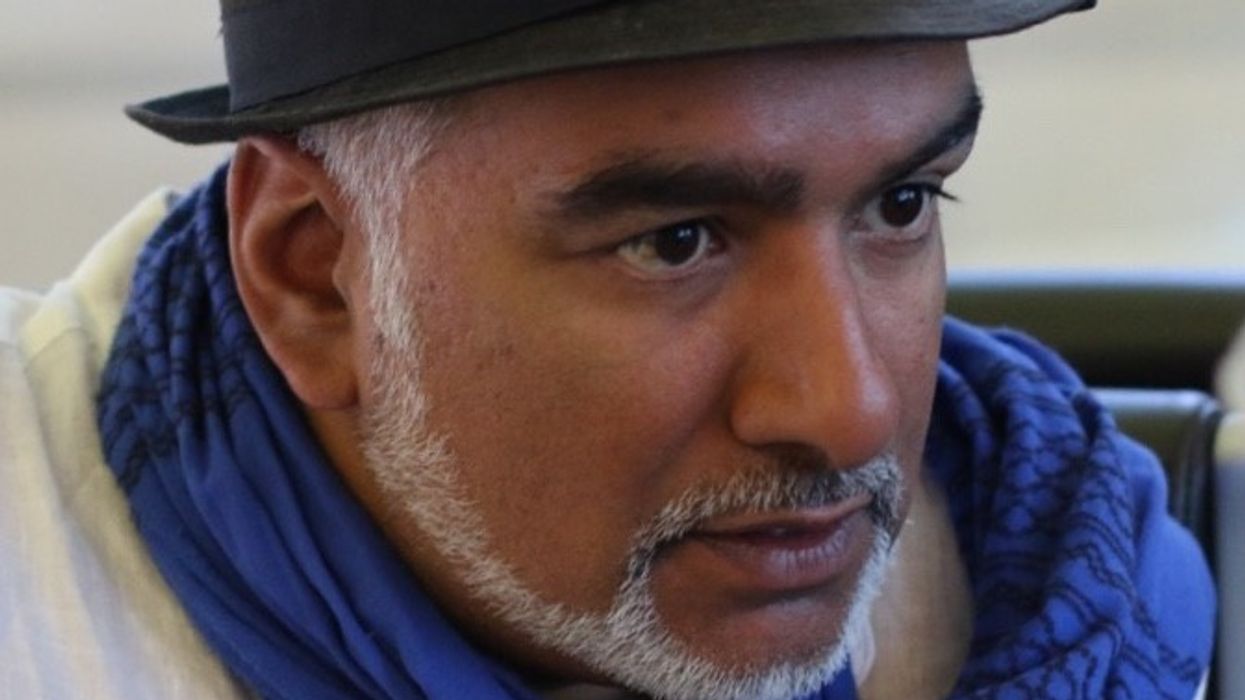A new play based on Asian author Sathnam Sanghera’s novel traces generations and communities, offering insight into British society, its director has said.
Published in 2013, Marriage Material delves into the experiences of an immigrant family in the UK, as a young man navigates the tensions between his dual British and Punjabi identities, his family’s past, and the life he has built for himself.
Marriage Material has been adapted for the stage under the same name by Gurpreet Kaur Bhatti and is directed by Iqbal Khan.
The play follows the journey of a Sikh family across generations. It begins in the late 1960s in Wolverhampton, where they run a corner shop, and continues through to the present day.

In an interview with Eastern Eye, Khan said, “The play tracks and parallels my life in many ways, because I was born in Birmingham to Punjabi Pakistani parents, and so many of the themes are resonant with what I’ve lived. So, it’s a very significant story.”
He added, “Gurpreet has made changes (from the original version) and it has a slightly different end. Interestingly, there are no stereotypical elements.
“One of the most compelling aspects of Gurpreet’s writing was where the story begins. “Typically, such plays start with the patriarch and matriarch figures from the older generation, often portrayed as duty-bound and lacking passion. But that’s not the case here. We begin with a relatively young couple in their early to mid-30s, deeply in love – and unafraid to show it.
“The play then explores how the pressures of living in British society gradually erode their physical health and what their children inherit from them, both emotionally and culturally.”

Khan, who is in his early fifties, and is the associate director of Birmingham Rep, said the play speaks direct to Sikh and Punjabi communities, especially those in the Midlands and London.
He said, “Like any great piece of theatre, this story, however, goes beyond one community. It’s about a family, about Britain, and about the journey of identity in today’s world.”
But, he added, “This isn’t just a story about British Asians – it features a range of characters and reflects the wider story of who we are as a country today, shaped by our past. Anyone interested in that journey, or who comes from an extended family or immigrant background, which includes most of us, will find something familiar in it. It’s a warm and funny play, using humour to bring people together and celebrate our differences. It builds bridges across generations and cultures, and I truly believe it will resonate with everyone, no matter their background. It’s a story for all.”
Describing the “inner strength” of the novel, Khan said, “Great writers often use the family and the domestic sphere as a metaphor for the world. This is also very much present in Sanghera’s original novel. By focusing on the family, you create an image of the world and of society. So, it’s not just about a Sikh Punjabi family in Wolverhampton; it’s also an image of how society has developed over time. The more specific we are, the more resonant the story becomes with universal truths – about the world, society, and what makes Britain what it is today.”
Khan explained how in the play’s second half, set in the present day, the youngest son faces questions about who he really is – how he balances his Asian heritage with his British life. He’s also in a relationship with a white British woman, which brings up issues that are still very relevant.
“I hope anyone who enjoys smart comedy, moving drama, and quality theatre will come. It’s a rich, heartfelt story that can connect with people from all walks of life,” the director said.
Khan has been working in the industry for more than three decades. He said the production team used movements and music to show transitions among different time periods in the play.
“Honouring the complexity of that narrative is a significant challenge. Another is the structure – the first half jumps forward in time, sometimes five or 10 years at a stretch. Staging those shifts while maintaining narrative clarity is demanding. We’re not relying solely on realism either; we’re also working to preserve the poetic and lyrical qualities of the piece,” he said.
“I hope it’s a beautiful, playful set, with a poetic element. The great thing about theatre is that it’s inherently non-naturalistic. If you want naturalism or realism, you go to TV or cinema. Theatre is a poetic form; it allows you to suggest truths and transition between moments. The design conveys more than just the setting or period. Without giving too much away, the play does shift across time.”
Khan said it’s an “exciting time” for people from Asian and minority communities to be in the arts.
“When I started in the industry, there were a few leading figures like Jatinder Verma (theatre director and activist), but opportunities were limited, especially in the mainstream. The types of stories being told were quite narrow. That has changed a lot. Today, the arts are far more open and eager for a wider range of stories, not just those focused on trauma, but joyful and celebratory ones too. The next big step is encouraging people from all backgrounds to tell any story they feel passionate about, not just ones linked to their heritage,” he said.
“If you’re creative with a strong voice, don’t feel restricted. Tell the stories you want to tell. Don’t limit your ambitions or dreams. Be bold, and don’t be afraid to bring activism into your work. In the past, work from marginalised communities was seen as financially risky, but that view is shifting – and will continue to change faster if the next generation stands firm and refuses to compromise.
“We now have inspiring leaders like Indhu Rubasingham and Natasha Kathi-Chandra, who are genuinely excited about bold, honest, and sometimes challenging stories that reflect the world we live in. So yes, it’s a very exciting time to be in the arts.”
Marriage Material will run at Lyric Hammersmith Theatre until June 21, and at Birmingham Rep from June 25 to July 5.





